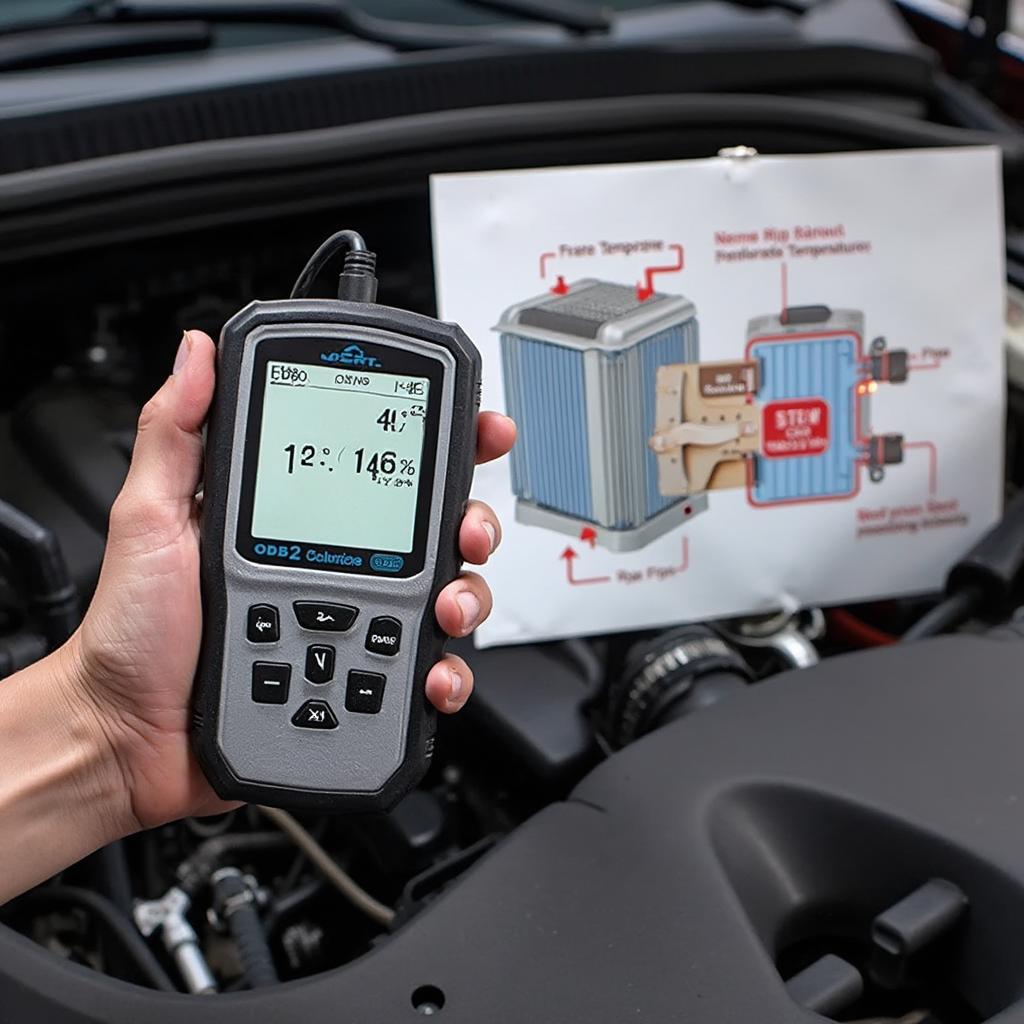Knowing which OBD2 PIDs (Parameter IDs) to monitor can be like having a secret window into your car’s soul. It’s the key to understanding its performance, diagnosing issues, and even preventing future problems. This article will delve into the most useful OBD2 PIDs, explaining their significance and how they can empower you to take control of your vehicle’s health.
Unlocking Your Car’s Secrets: Essential OBD2 PIDs
OBD2 PIDs are standardized codes that request specific data from your vehicle’s ECU (Engine Control Unit). Think of them as questions you pose to your car’s computer, with each PID eliciting a specific answer about engine performance, emissions, and other vital systems. While there are hundreds of PIDs, certain ones offer more valuable insights for the average driver and even professional mechanics.
Engine Speed (PID 010C)
This PID reports the engine’s current speed in revolutions per minute (RPM). Monitoring engine speed is fundamental for understanding engine load, diagnosing misfires, and identifying potential issues with the idle control system.
Vehicle Speed (PID 010D)
Vehicle speed, measured in kilometers or miles per hour, is crucial for verifying speedometer accuracy, analyzing transmission performance, and even understanding fuel efficiency at different speeds.
Coolant Temperature (PID 0105)
This PID provides the engine coolant temperature, a vital parameter for detecting overheating issues, thermostat malfunctions, and potential problems with the cooling system. Maintaining optimal coolant temperature is essential for engine longevity.
Fuel System Status (PID 012F)
Understanding your fuel system’s status is paramount for diagnosing fuel delivery problems. This PID helps identify issues such as lean or rich fuel mixtures, which can impact performance and emissions.
Oxygen Sensor Readings (PIDs 0114-011B)
Oxygen sensors play a crucial role in maintaining the correct air-fuel ratio. Monitoring their readings through these PIDs can help pinpoint faulty sensors, catalytic converter issues, and other emissions-related problems.
Advanced PIDs for Deeper Diagnostics
While the above PIDs are essential for general monitoring, more advanced PIDs can provide granular insights for experienced users:
Manifold Absolute Pressure (PID 010B)
MAP measures the pressure inside the intake manifold and is vital for assessing engine load, diagnosing turbocharger or supercharger issues, and identifying vacuum leaks.
Mass Air Flow (PID 0110)
MAF measures the amount of air entering the engine. Monitoring MAF readings can help diagnose air intake restrictions, faulty MAF sensors, and other air-fuel mixture problems.
Calculated Load Value (PID 0104)
This PID represents the engine’s current load relative to its maximum capacity. It’s useful for understanding engine performance under different driving conditions and identifying potential power loss issues.
Conclusion: Empowering You with OBD2 Knowledge
Understanding which OBD2 PIDs are most useful to monitor puts you in the driver’s seat when it comes to your vehicle’s health. By tracking these key parameters, you can gain valuable insights into your car’s performance, diagnose potential problems early, and ultimately save time and money. Regularly monitoring these PIDs, coupled with a quality OBD2 scanner, is an investment in the long-term health and reliability of your vehicle.
FAQ
- What is an OBD2 PID?
- How can I access OBD2 data?
- Do all cars support the same PIDs?
- What is a good OBD2 scanner to use?
- Can I use OBD2 data to improve fuel efficiency?
- What are some common issues diagnosed using OBD2 PIDs?
- Where can I find a complete list of OBD2 PIDs?
Need assistance? Contact us via WhatsApp: +1(641)206-8880, Email: [email protected] or visit us at 789 Elm Street, San Francisco, CA 94102, USA. Our 24/7 customer support team is always ready to help.


